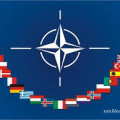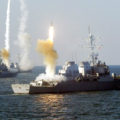American national security is at greater risk now than during the Cold War.
Russia, China, Iran and North Korea as well as terrorist forces present an extraordinary danger to the United States. Russia now has the planet’s largest nuclear arsenal, and China has become a true military superpower.
Take both the United States and its allies in the Pacific and NATO out of the picture for a moment. The outlook of one traditionally nonaligned nation indicates how serious an historically neutral nation takes the growing threat.
Global Security reports that Sweden will increase its defense budget substantially, and will continue to do so until 2025. “The money will be used to equip the defense, especially when it comes to ground combat forces. The number of defense personnel will increase, from today’s 60,000 people to 90,000 including home defense and civilian employees. Defense Minister Peter Hultqvist said at the press conference that the current upgrading of the defense is the ‘biggest reinforcement in decades’. He said ‘We have a better and stronger defense today than 2014, but much remains to be done.’
Sweden is not alone. According to the Stockholm International Peace Research Institute “Several countries in Central and Eastern Europe made large increases in their military expenditure in 2018. Spending by Poland rose by 8.9 per cent in 2018 to $11.6 billion, while Ukraine’s spending was up by 21 per cent to $4.8 billion. Spending by Bulgaria, Latvia, Lithuania and Romania also grew (ranging from 18 per cent to 24 per cent) in 2018. ‘The increases in Central and Eastern Europe are largely due to growing perceptions of a threat from Russia,’ said Pieter Wezeman, a senior researcher with the SIPRI AMEX programme.”
In addition to its vast nuclear arsenal, portions of which have violated international accords, Moscow’s aggression in Ukraine and Georgia has produced legitimate concern.
Russia’s actions are mirrored by China in the Pacific.
The Brooking Institute’s Erin Baggott Carter notes that “China’s leader-for-life Xi Jinping will … initiate international conflicts in order to build the sort of public nationalism that makes it difficult for elites to challenge him. The result will be a more aggressive, destabilizing, and unpredictable foreign policy. China’s ‘rise’ is among the great challenges of the 21st century, in part because China’s domestic politics compel risky behavior on the international stage.”
Richard Heydarian, writing for the Nikkei Asian Review, reported the latest blatant act of Beijing’s aggression: “Between January and April, close to 300 suspected Chinese militia vessels swarmed and surrounded the parts of the Spratly Islands held by the Philippines. This went hand in hand with the growing harassment of Filipino fishermen in the Scarborough Shoal, which has been under the de facto occupation of Chinese paramilitary forces but is claimed by the Philippines. Things came to head in June when a suspected Chinese militia vessel rammed and sank a Filipino fishing boat in the Reed Bank, an energy-rich area that falls within the Philippines’ Exclusive Economic Zone.”
According to Beijing’s own official report issued on January 4,
“President Xi Jinping Friday ordered the Chinese armed forces to enhance their combat readiness…”
When the Chinese Navy infringed upon the Philippines’ Exclusive Economic Zone, The Obama White House didn’t lodge a diplomatic protest. Even after the World Tribunal at The Hague ruled in favor of the Philippines, the White House remained on the sidelines.
When Russia invaded Ukraine, the only Obama response was a weak set of sanctions.
Some believe that America is in no military danger from abroad, and that whatever global challenges Washington must deal with are the products of its own prior actions. Whatever inconvenient facts depart from that narrative are wholly disregarded.
Frank Vernuccio serves as editor-in-chief of the New York Analysis of Policy & Government.

















Follow Us